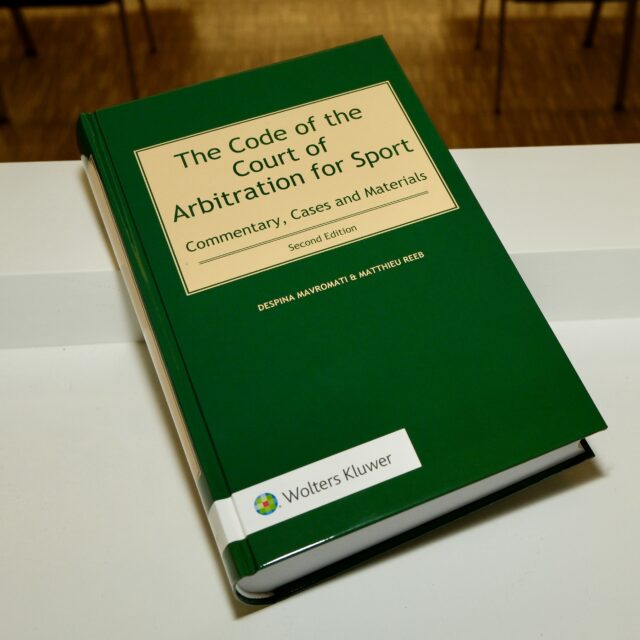4A_100/2023, judgment of June 22, 2023
Croatian Club v. Austrian Coach & FIFA, motion to set aside the CAS Award (CAS 2021/A/7794)
This case dealing with the independence and impartiality of the arbitral tribunal is particularly interesting, not least because it annulled a CAS award for the erroneous challenge of an arbitrator by the ICAS Challenge Commission.
The dispute arose out of a typical contract of employment between an Austrian coach and a Croatian club, which included a clause granting jurisdiction to the Arbitral Tribunal of the Croatian Football Federation (Croatian Football Tribunal). The Club unilaterally terminated the contract and the Coach seized the FIFA Players Status Committee (PSC) instead of going to the Croatian Football Tribunal.
FIFA PSC accepted its jurisdiction based on Art. 22 (c) Rules on the Status and Transfer of Players (RSTP) which gives FIFA jurisdiction over disputes of international dimension, unless an independent arbitral tribunal exists at the national level. The FIFA PSC also held that the arbitration clause in the contract did not contain an exclusive clause in favor of the Croatian Football Tribunal. In this case the arbitration clause was not “exclusive”.
In the subsequent appeal to the CAS, the Club appointed a Croatian Arbitrator who signed his declaration without mentioning that he was also an arbitrator at the Croatian Football Tribunal. It is noteworthy that a disputed element of the case – also in order to corroborate the Club’s argument of lack of the FIFA PSC and CAS’ jurisdiction -that the Croatian Football tribunal was an independent and impartial tribunal in the terms of Art. 22 (c) of the FIFA RSTP. The three-member panel appointed on this case was constituted, held an online hearing and during the deliberations the Croatian Arbitrator revealed for the first time that he was also a member of the arbitral tribunal of the CFF, reason why he knew the structure and the functioning of such tribunal.
The CAS Head of arbitration then told him that he should step down or at least disclose this to the parties, and the Croatian Arbitrator filed the following disclosure: “I serve as one of the twelve arbitrators of the list of Croatian FootballFederation Court of Arbitration. I note this to be a public information, that can be seen from my CV on CAS profile.” This led to an immediate request for challenge by FIFA (the second respondent in this case) and the acceptance of such request through an ICAS Challenge Commission decision, leading to the replacement of the Croatian Arbitrator.

An interesting admissibility obiter related to the standing of FIFA in the federal proceedings. Distinguishing between the standing of FIFA in the CAS proceedings and in the federal proceedings, the SFT did not invite FIFA to submit its observations considering that this situation was akin to the one of a first-instance tribunal.
Findings of the SFT
An interesting admissibility obiter related to the standing of FIFA in the federal proceedings. Distinguishing between the standing of FIFA in the CAS proceedings and the standing of FIFA in the federal proceedings, the SFT did not invite FIFA to submit its observations considering that its situation was akin to the one of a first-instance tribunal in the Swiss cantonal proceedings (referring to the Guerrero case).
The SFT also confirmed that, notwithstanding the unusual character of the demand (it is typically against a challenge decision dismissing the challenge that the parties file a motion to the SFT), such situation fell within the scope of Article 190 (2) a PILA on the irregular constitution of the panel to the extent that the ICAS decision to remove the Club’s appointed arbitrator deprived the Club from its right to appoint its arbitrator.
After reiterating the essential principles on the duty of independence and impartiality of arbitrators, referring both to the Constitutional guarantees applying to state judges and the specificities of arbitration pursuant to the IBA Guidelines, the SFT referred to the ongoing duty of disclosure of arbitrators: even though, since the last amendment of 2021, Article 179 PILA explicitly requires the ongoing disclosure from arbitrators in international arbitration proceedings, such duty does not apply to notorious / published facts that can be easily traced (4A_520/2021 at 5.5).
Inversely, all parties / their counsel have a high due diligence duty (duty of curiosity / duty of investigation) and should not rely exclusively on the arbitrator’s declaration of independence. As such, FIFA had blatantly violated its duty of curiosity by failing to raise the challenge upon the appointment of the arbitrator.
Key takeaways
In this judgment, the SFT highlighted the importance of the parties’ duty of curiosity as the starting point for the admissibility of the challenge. To the extent that arbitrators are not obliged to disclose known / published facts (in casu the arbitrator had this information on the CAS website and other social media pages), the burden is on the parties to show that they complied with their duty of curiosity. This case is thus different from the Sun Yang case (ATF 147 III 65 at 6.5) as the parties would not be expected to look into all social media and search engines to the extent that the information was easily accessible through the official CAS website.
Interestingly, once the SFT confirmed that FIFA’s challenge was inadmissible and that the ICAS Commission should not have removed the Croatian Arbitrator, it left the question open as to whether the fact that he was a member of the Croatian Football Tribunal could raise serious doubts on his independence / impartiality in the present case. This is different than what the SFT has traditionally done in other cases related to Art. 190 (2) a PILA, such as in the Del Nero case (4A_520/2021) where it still considered that the challenge was unfounded, or the 4A_484/2022 case.
To the extent that arbitrators are not obliged to disclose known / published facts (in casu the arbitrator had this information on the CAS website and other social media pages), the burden is on the parties to show that they complied with their duty of curiosity.








